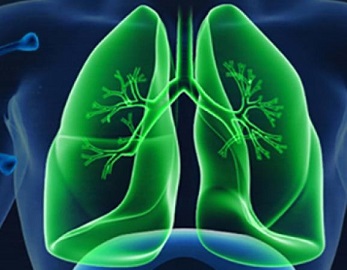COVID-19 News: Exosomal miRNAs And Their Implications In COVID-19-Related Acute Respiratory Distress Syndrome Sequelae
COVID-19 News: The global impact of the SARS-CoV-2 virus and the resultant COVID-19 pandemic has been unprecedented, affecting millions of lives and economies worldwide. While vaccination efforts have mitigated the severity of the crisis, a significant number of individuals continue to experience long-term health complications post-recovery. Among these, survivors of COVID-19-related acute respiratory distress syndrome (ARDS) often face incomplete lung recovery, prolonged symptoms, and radiological abnormalities. Understanding the molecular mechanisms underlying these sequelae is critical to developing effective strategies for patient management and improving outcomes.
 The Link Between Inflammation, Fibrosis, and Long-Term COVID-19 Effects
The Link Between Inflammation, Fibrosis, and Long-Term COVID-19 Effects
As recovery from COVID-19 progresses, some patients experience lingering respiratory symptoms and radiological abnormalities. This indicates that while clinical recovery may be achieved, persistent inflammation and fibrosis can contribute to long-term lung dysfunction. The abnormal wound-healing process that leads to fibrotic remodeling is closely linked to persistent sub-acute inflammation and immune dysregulation. This has been covered in various past studies and
COVID-19 News reports. Mechanisms that predispose individuals to prolonged inflammation and fibrosis in post-acute lung damage are not yet well understood.
MicroRNAs: Key Regulators of Gene Expression
MicroRNAs (miRNAs) are short non-coding RNA molecules that play a crucial role in post-transcriptional gene regulation. They mediate mRNA repression or degradation, thereby influencing various cellular processes. Exosomal miRNAs, encapsulated in extracellular vesicles, are secreted by different cell types and facilitate intercellular communication by transferring genetic information between cells. Despite their potential significance, the role of exosomal miRNAs in the persistence of pulmonary inflammation and fibrotic evolution post-acute lung injury remains understudied.
Exploring Exosomal miRNAs in COVID-19 Sequelae
Researchers from Santa Maria Terni Hospital in Italy and the University of Perugia investigated the association between specific exosomal miRNAs and radiological patterns in survivors of COVID-19-related ARDS. The
COVID-19 Research study focused on miRNAs known to regulate the NLRP3-inflammasome pathway, which plays a role in inflammation progression and cytokine storms in acute COVID-19. Additionally, miRNAs involved in the post-transcriptional regulation of acute-phase cytokines and those related to fibrosis were examined.
The Study's Findings
The study cohort consisted of COVID-19-related ARDS survivors, categorized based on radiological patterns into normal (N), pulmonary opacities (PO), and fibrosis-like lesions (FL). The researchers profiled exosomal miRNAs from the plasma of these individuals. Three miRNAs - miR-17-5p, miR-223-3p, and miR-146a-5p - were significantly down-regulated in patients with FL compared to those with PO. Additionally, miR-146a-5p was also down-regulated in patients with FL compared to those with N. These findings indicated a poten
tial correlation between reduced expression of these miRNAs and the development of fibrosis-like radiological patterns.
Insights from Down-Regulated miRNAs
-miR-146a-5p: This miRNA is associated with attenuating inflammatory responses by suppressing the NLRP3-inflammasome activation and reducing protein levels of NLRP3/ASC/caspase1. It also negatively correlates with pro-inflammatory signaling pathways, suggesting that its downregulation could lead to persistent inflammation and fibrosis.
-miR-223-3p: Studies have shown that miR-223-3p negatively interacts with NLRP3 mRNA, suggesting its role in regulating the NLRP3-inflammasome pathway. Its deficiency in mice has been linked to exaggerated lung inflammation and tissue destruction in response to inflammatory stimuli. In the context of COVID-19, miR-223-3p appears to regulate lung inflammatory responses induced by the virus.
-miR-17-5p: Part of the miR-17~92 cluster, miR-17-5p has been shown to inhibit NLRP3 activation. Its presence in lung fibroblasts has been associated with reduced fibrosis and normalized cellular phenotype. This miRNA may also be linked to COVID-19 pulmonary sequelae, especially in patients with ARDS.
Clinical Implications and Future Directions
The study's findings contribute to our understanding of the molecular mechanisms underlying the persistence of lung inflammation and fibrosis in COVID-19-related ARDS survivors. While the observed down-regulation of specific exosomal miRNAs suggests a potential role in promoting fibrotic evolution, further research is needed to validate these findings and explore the interplay between miRNAs and relevant proteins. Longitudinal studies and larger datasets are essential to confirm the potential diagnostic and therapeutic applications of these miRNAs.
Limitations and Considerations
The study does acknowledge certain limitations, including the lack of specificity of the identified miRNAs for fibrotic lung disease. The study's small sample size and inherent differences in clinical characteristics among patients may have influenced the miRNA expression levels. Additionally, the potential influence of various clinical risk factors on miRNA expression was not fully explored.
Conclusion
In conclusion, the study sheds light on the potential involvement of specific exosomal miRNAs in the development of long-term pulmonary sequelae in survivors of COVID-19-related ARDS. The down-regulation of miR-17-5p, miR-223-3p, and miR-146a-5p appears to correlate with the fibrosis-like radiological pattern observed in some patients. These findings underscore the need for further research to unravel the intricate mechanisms driving the persistence of inflammation and fibrosis in post-acute COVID-19 lung damage. By targeting these miRNAs and related pathways, novel therapeutic interventions could be developed to improve outcomes and enhance the quality of life for patients recovering from severe COVID-19.
The study findings were published in the peer reviewed International Journal of Molecular Sciences.
https://www.mdpi.com/1422-0067/24/17/13037
For the latest
COVID-19 News, keep on logging to Thailand Medical News.
